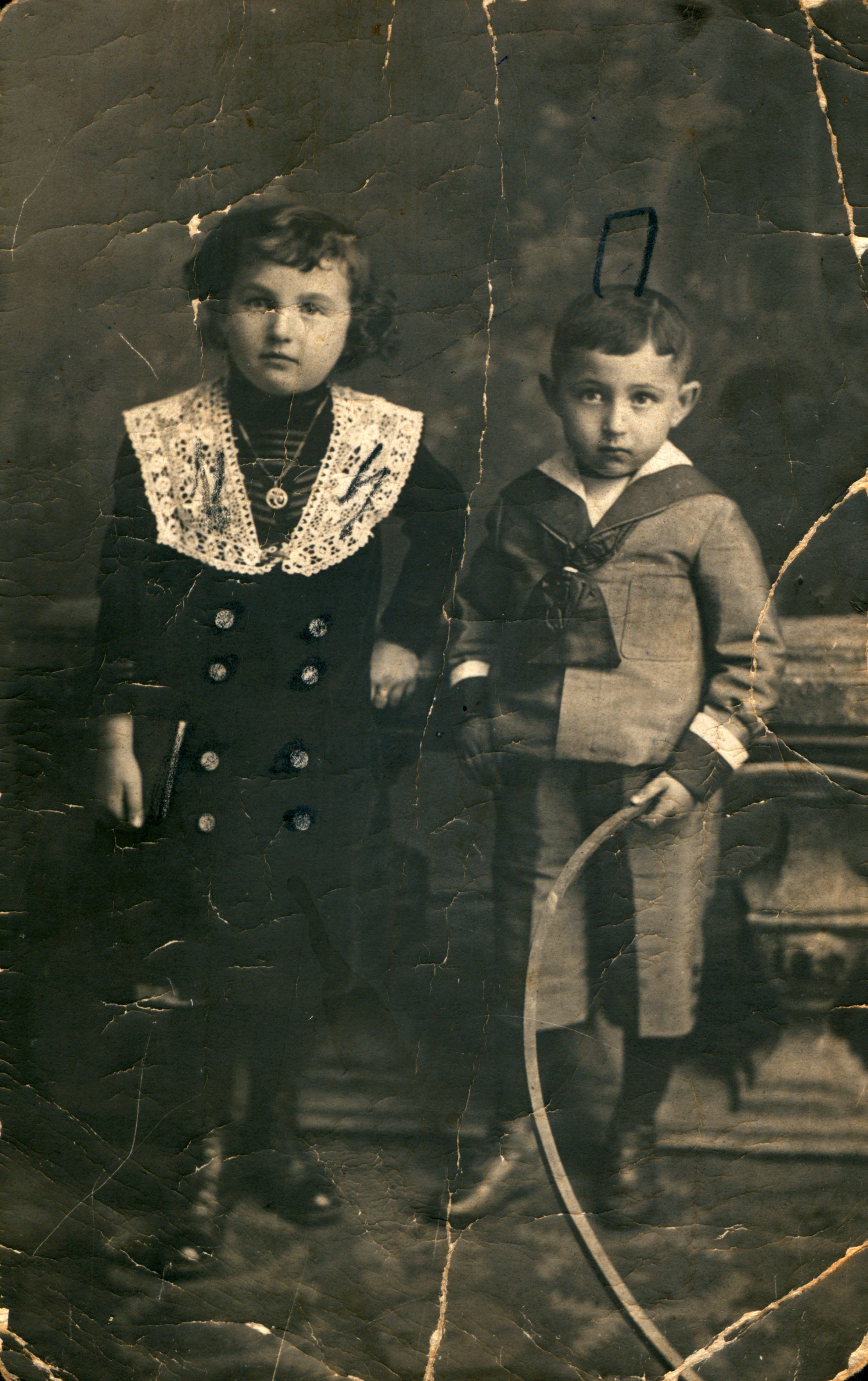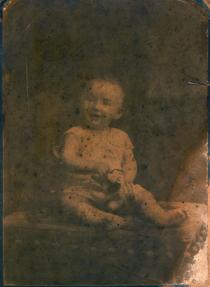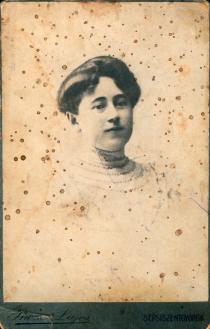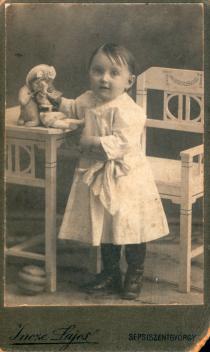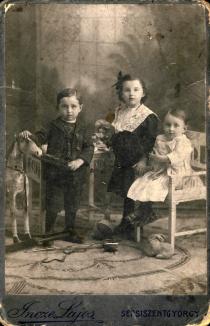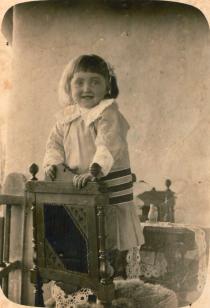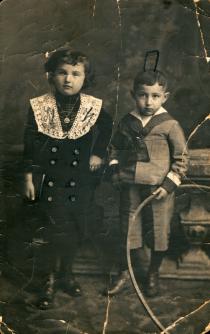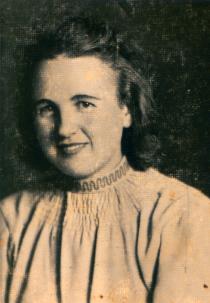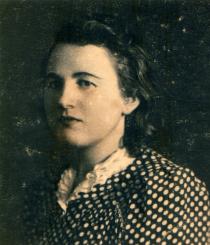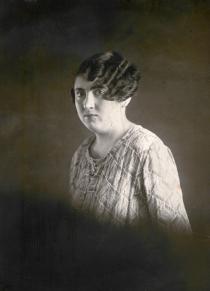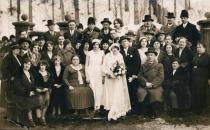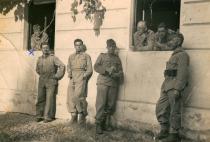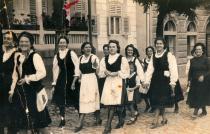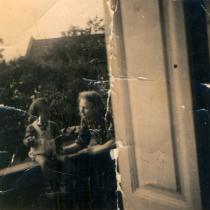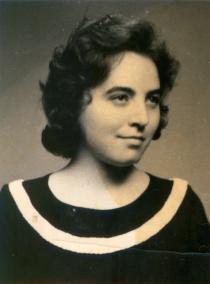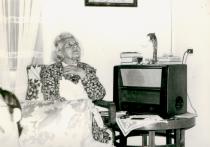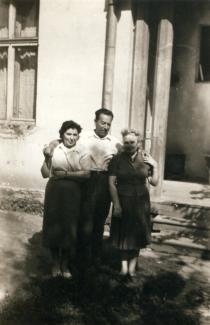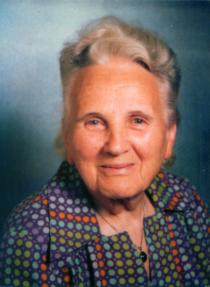This is me, Alice Kosa [nee Molnar] with my little brother, Bandika [Andras Molnar], in around 1915.
We went to the Jewish kindergarten in Sepsiszentgyorgy, I know that. But I attended the Hungarian kindergarten too, it was compulsory.
I liked the Hungarian kindergarten better, because there were more toys, we played more in the normal state kindergarten.
I remember less the Jewish kindergarten, I don't know how things were there.
We attended the Jewish school [cheder] as well, while we were in the four primary grades. I could read [in Hebrew], but I forgot.
We were two naughty children, my grandmother [Franciska Feder] told me that my brother and I were fighting, and the poor woman couldn't bear it.
So my grandmother arranged [so that we went to school together].
I was six years old in May [1915], and I was enrolled to the first degree, and my brother wasn't even five, but she said: 'If you fight, he will go too [to the school].'
She enrolled him so that we wouldn't only wrangle. And I don't know how, but they accepted him.
Thus we weren't in the same class, but in parallel classes, he in a boys' class, because girls and boys had separate classes.
Oh, but in the first form we learnt to count until twenty.
We made - we had to, the teacher told us to - twenty little sticks of twigs [we used them for counting], and we were writing on the board with slate-pencils.
This was the whole great science, that we learnt to count until twenty, and one or two block letters, capital letters, and one or two words, like horse.
That's what I remember. I don't recall all this well, it was too long time ago to remember it precisely.
But I finished there only one grade of primary school, because my grandmother sent me back to the convent in the first grade, because she wasn't satisfied with the things they had taught me here.
It was also my grandmother who wanted me to learn to play the piano - she was so ambitious, she would have liked to do everything -, so she sent me to the nuns, to the catholic school.
There one of the nuns taught me to play the piano. But she taught me in vain, if I didn't have a piano.
So I finished four years in the convent, only the primary school.
[Editor's note: In those times one could go to a secondary school (civil school, first grade of gymnasium etc.) only after finishing four years of primary school.
Those who didn't study further, had to finish the fifth and sixth grade of elementary school.]
The convent had only six grades, those who didn't want to go to a gymnasium after finishing the fourth grade - well, poor children too attended the convent -, finished only five or six grades.
Because those went to work already, a kid who finished six grades, was ten or twelve years old, became a gooseherd, so in those times the parents had the little girls and boys work.
That's how things were, poverty was deep.
I finished four years of gymnasium in the Miko, I finished the fourth grade of gymnasium in 1924.
Then there was a two-years reformed school of commerce in Brasso, and I attended it, I finished my studies in 1926.
I don't believe there are any former classmates left in Brasso. I don't think they would live for so long.
I would have preferred to go to Kolozsvar, to the Jewish gymnasium, and then to become a doctor.
I would have liked to become a doctor by all means - though I wouldn't have been capable for it -, I don't know why my father sent me yet to Brasso, to the two-year commercial school.
